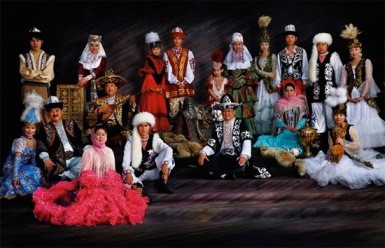Zhang Chunxian, Party chief of the Xinjiang Uyghur Autonomous Region, said on Tuesday, Aug. 18, that Xinjiang has the potential to become a vital trade hub in Eurasia, Central and South Asia.
In his keynote speech at the opening ceremony of Xinjiang Development Forum in Urumqi, Zhang said that as the core of the ancient Silk Road and the crossroads of Chinese, Indian, Persian and Greek civilizations, Xinjiang is a potential trade partner for the region. This year marks the 60th anniversary of the founding of the region.
Zhang noted that being at the heart of the historic trade route and now home to various ethnic groups, cultures and religions, the region has been nurtured by unity and mutual trust, equality and mutual benefit, inclusiveness and mutual learning, and win-win cooperation.
To consolidate efforts to make Xinjiang an important window for China's opening-up to the West, President Xi Jinping proposed the Silk Road Economic Belt in Sept. 2013, and in March this year, the Chinese government released an action plan to implement the initiative.
The initiative will connect Xinjiang to two 1.3-billion-people markets in the East and West, with the potential to become a vital transport hub in Eurasia after the Silk Road Economic Belt.
Rich in natural and labor resources, having sound infrastructure and an efficient regional government, Xinjiang's economy has increased an average of 11.1 percent a year over the past five years, as its per capita GDP increased from $2,917 to $7,037.
The region is restructuring its economy and changing its growth model, committed to environmentally friendly and sustainable development.
According to Zhang, Xinjiang will take advantage of the opportunities given by the Silk Road Economic Belt plan to expedite the development of the region as a transport, trade, logistics and cultural hub for Central Asia and beyond.
In addition to this, the region plans to build energy and telecommunication facilities in the future, and build an information center for rail and road transport between China and Europe to provide a better transcontinental transport link that will connect China with Central Asia, the Middle East, South Asia, Europe and Africa and open up to the outside world.
Xinjiang is expected to accommodate enterprises engaged in construction material and equipment manufacturing, textile and garment, and oil and gas processing that are shifting base from East and Central China to the region.
The region will also expand trade cooperation in agricultural products with Central Asian countries to secure its food supply while strengthening security cooperation with border countries to maintain regional stability and peace.



























